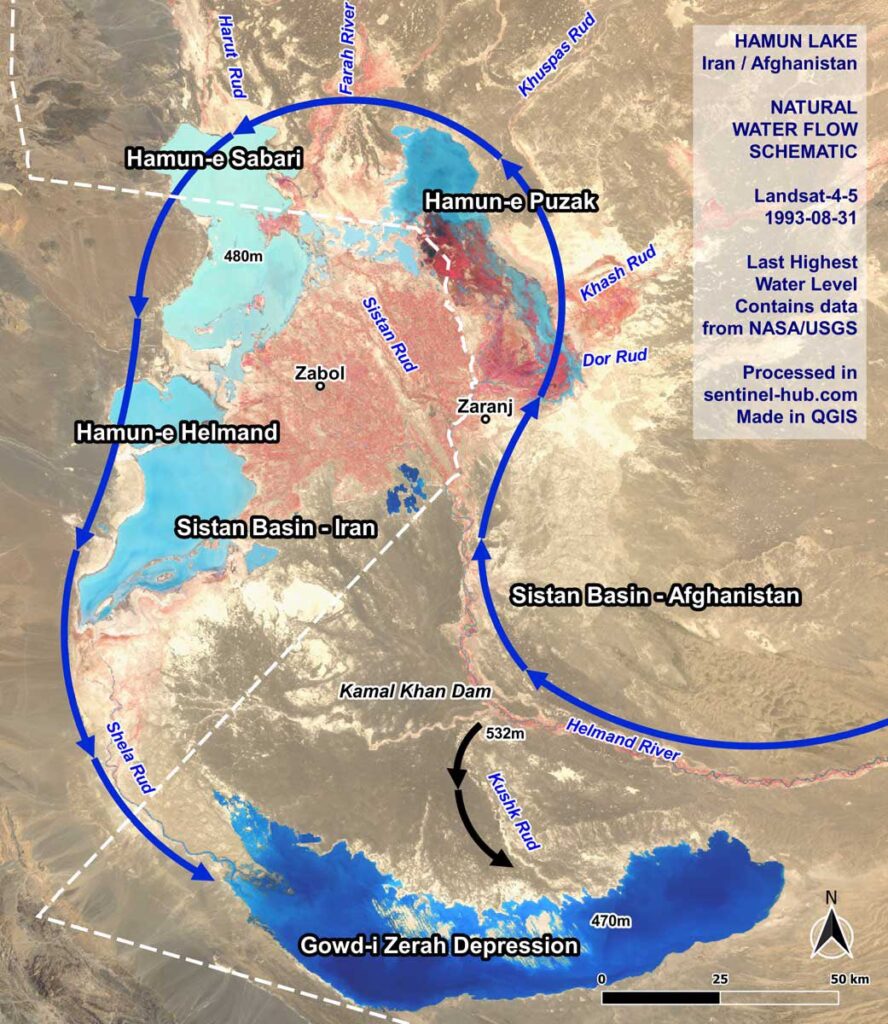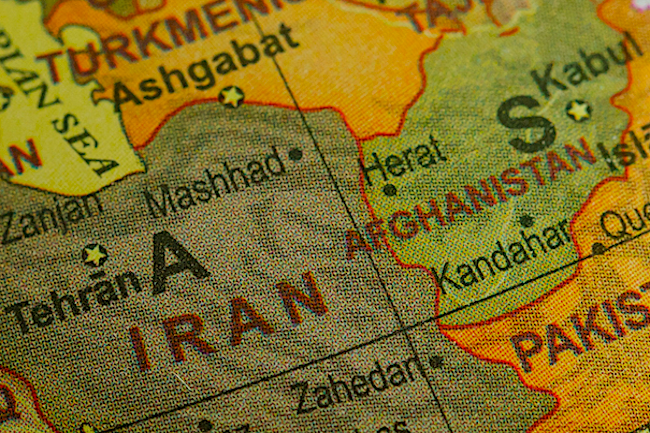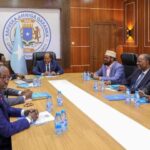Deadly clashes broke out between Afghan and Iranian guards at their border raising fears of a new conflict.
Both sides have accused each other of initiating the shooting in which at least two Iranian and one Afghan guard were killed. Following the border violence, Iranian authorities closed the Milak-Zaranj border post, an important commercial crossing – and not the site of the clash – until further notice, Iran’s IRNA news agency reported.
Despite a treaty in place since 1973 on the sharing of Helmand River waters, the two sides have wrangled for decades. The river flows from Afghanistan towards eastern Iran. According to the Helmand Water Treaty, Afghanistan should annually share 850 million cubic metres of water from Helmand with Iran.
It also calls on both sides to address their differences via diplomatic channels and, if that fails, through an advisory board headed by a mutually chosen arbitrator.

The reasons for the clashes are still unknown but the shooting at the border post between the Afghan province of Nimroz and Iran’s Sistan-Baluchistan province comes as Iranian President Ebrahim Raisi earlier this month accused Afghanistan’s Taliban rulers of restricting the flow of water to Iran’s eastern regions in violation of the 1973 treaty. Afghanistan is denying Iran its water rights under the pact have heightened tensions between Tehran and Kabul.
The issue of water has been a flashpoint between Afghanistan and Iran for centuries. The two countries are bound by the Helmand River, the longest river in Afghanistan, which flows from the foothills of the Hindu Kush mountain range and feeds into wetlands along the country’s border with Iran. The river is a critical source of drinking water, as well as agriculture and fishing, in southern Afghanistan and southeastern Iran.
In the 1940s and ’50s, Afghan governments constructed two major dams along the Helmand River, giving Afghanistan the power to cut off the flow of water into Iran and alarming Iranian officials as the country experienced periods of intense drought. Though the two countries signed a treaty on sharing water resources in 1973, it was never ratified, and the flow of water from the river has remained a heated point of contention ever since.
Since the Taliban seized power in August 2021, the Iranian authorities have maintained relations with Afghanistan, and in February, Iran became one of a few foreign governments to accept Taliban-appointed diplomats in their country.
But this month, President Ebrahim Raisi of Iran warned the Taliban administration not to violate the terms of the 1973 water treaty and urged the Afghan government to allow Iranian hydrologists to check the river’s water levels.
There is a lack of clear demarcation and understanding of border boundaries and rules from Taliban fighters since their takeover of Afghanistan in August 2021.
Iranian officials have repeatedly blamed the Taliban for its disregard for international laws and border protocols since its takeover of Afghanistan two years ago. Clashes have erupted on multiple occasions, but have rarely led to casualties and have been routinely blamed on “misunderstanding”.
The border clashes have prompted both sides to de-escalate the situation and “reaffirm their commitment to dialogue and cooperation.
Iran seems to be open to dialogue, given that the Taliban’s acting foreign minister met an Iranian envoy to discuss the Helmand River water rights on the day of the clash.
As Kabul and Tehran are “trying to balance their interests and concerns” their relationship remains in a state of “uncertainty”. The water dispute between both countries is likely to remain a “contentious issue” as they face increasing water scarcity and demand.
While Iran has held a dialogue with the Taliban, it has not officially recognised them as the legitimate rulers of Afghanistan. The Shia-majority country has called for the formation of an inclusive government that represents all ethnic and religious groups in Afghanistan, especially the Shia Hazara minority, who have faced persecution and violence from the Taliban in the past. Iran does not recognize the ruling administration in Kabul, underlining the need for the formation of an inclusive Afghan government.






